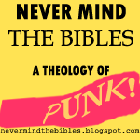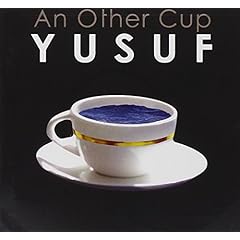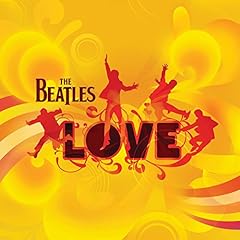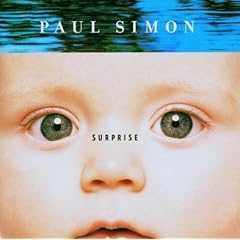God is my co-pilot...

... and Jesus built my Palm Pilot.
Link via The Eye Opener.
:: Andrew 13:03 + ::
...
:: Friday, May 30, 2003 ::
I meant to post about this on May 20
That was the feast day for Saint Bernadine of Siena, the patron saint of public relations personnel. According to his profile, "His preaching skills were so great, and the conversions so numerous, that he has become associated with all areas of speaking, advertising, public relations, etc." He's also the patron saint of compulsive gamblers, so I'm in good company.
:: Andrew 12:58 + ::
...
No mention of my favorite, the meatball grinder
Your favorite sandwich reveals your personality, from Weekly World News. Link via The Eye Opener.
(My second favorite sandwich is tuna, which, according to the report, reveals this about me: Your calm, serene outlook has many people looking to you for guidance. You're a problem solver who doesn't waste time assigning blame when things go wrong. Just don't take all those problems on your own narrow shoulders -- it's not always your responsibility.)
On that note, I think I'll leave my messy desk as is and call it a weekend.
:: Andrew 17:09 + ::
...
You are Morpheus, from "The Matrix." You
have strong faith in yourself and those around
you. A true leader, you are relentless in your
persuit.
What Matrix Persona Are You?
brought to you by Quizilla
BTW, Quizilla misspelled "pursuit."
Quiz link via Lee Cowherd
:: Andrew 11:29 + ::
...
Bruce Almighty redux
Even though bloggers weren't talking much about Bruce Almighty before the movie premiered a week ago (well, except for one particularly astute observer of pop culture), they're talking now.
Wade Hodges gives the movie two thumbs up from a theological perspective: "I found "Bruce" to be a thought provoking, theologically stimulating, and heart warming meditation on the challenge of free will from the divine perspective, as well as the difficulty of hearing and answering prayers in a complex world where everything and everyone is interconnected. It's not always easy to bless one person when the result is bringing down a curse on someone else." Read more.
Darrell Dement also likey the Almighty.
Culture and Faith reports that Bob Jones U is not a fan of the movie. The school's newsletter (PDF) pans the movie as "blasphemous."
Sister's weblog has a great review.
All kinds of reports of people calling God's phone number that appears on Bruce's pager. One Florida woman is getting about 20 calls an hour.
:: Andrew 09:34 + ::
...
A prayer request
Please pray for Eliacin's wife, Ricci. Eliacin writes:
Today (May 29) Ricci had a small biopsy after finding some abnormalites in her yearly Paps Exam. The Doctor is sending the tissue over to the lab to find out what really is. He does not think is cancer niehter do we. We will know in a week or so. Even if is not cancer Ricci will have to go thru a cryogenic procedure to deal with the problem.
Please continue to keep Palmer's wife, Jennifer, in your prayers as she courageously fights cancer.
:: Andrew 09:10 + ::
...
Why I Blog
No, not why I blog, although I do agree with some of this blogger's points. It's a link to a post from Leighton Tebay -- about why he blogs.
:: Andrew 09:02 + ::
...
:: Wednesday, May 28, 2003 ::
Friday Five time again
Whew! What a week. Too many meetings, not much blogging. Turn around, and it's Friday Five Time yet again. This week's offerings:
1. What do you most want to be remembered for?
Wow. That's a tough one. Kind of reminds me of that thought experiment in Stephen Covey's 7 Habits book, where the reader is supposed to envision what people will say at the reader's funeral. So, I guess I would like to be most remembered for being a good and faithful husband, an example to others, and an ambassador for Christ in this world, in some way.
2. What quotation best fits your outlook on life?
"It is easier to beg forgiveness then to ask permission."
3. What single achievement are you most proud of in the past year?
The publication of my third book, Hooked on the Net.
4. What about the past ten years?
Becoming a published author, and saving a dying catalpa tree, transplanting it to our yard, and watching it grow into a beautiful, stately shade tree.
5. If you were asked to give a child a single piece of advice to guide them through life, what would you say?
To achieve greatness in life, serve others -- be a help to others.
Then I would quote Martin Luther King Jr.: "Everybody can be great...because anybody can serve. You don't have to have a college degree to serve. You don't have to make your subject and verb agree to serve. You only need a heart full of grace, a soul generated by love."
And I would quote Jesus: "For even the Son of Man did not come to be served, but to serve..." (Mark 10:45)
Check out these other Friday Fives: Pootlecat, Abbagirl, Joe, Oblique House, Storyteller
:: Andrew 08:48 + ::
...
Rachel's pictures of bloggers
Can you match the blogger's photo with the blog?
:: Andrew 08:14 + ::
...
Wisdom from today's Daily Dig
The best way not to experience peace of mind is to focus continually on yourself. -- Eberhard Arnold
:: Andrew 08:12 + ::
...
Postmodernism is dead
By way of a recent YouthSpecialties newsletter comes this article about postmodernism's demise. This essay contains much food for thought, but the gist of it is:
Postmodernism, then, was about the deconstruction of the dominant institutions of the Modern and the discrediting of the corresponding metanarratives that gave life to a host of real and perceived social injustices. While PoMo certainly nurtured some excesses, there's a good argument to made that it was a necessary phase in Western society's evolution toward stronger and more productive modes of social organization.
So, what's next? The Network Age, according to the author of this essay.
If we think about our lives here in the early moments of the 3rd Millennium, we can probably see any number of ways in which we're part of an emerging networked social order, and the network itself serves as the best metaphor I can think of for where we are and where we're going now that the big deconstruction is behind us. From a technological and social standpoint, few things have exerted as massive an impact on Western culture over the past few years as the Net - the result of spectacular parallel developments in personal computing and electronic communications. In some cases our migration into the network has been conscious and explicit. E-mail, for instance, has provided us with an easy and inexpensive means for staying in touch with friends and family, in many cases including people we had simply lost touch with before e-mail. The Web is now a primary source for news, to say nothing its role in helping foster communities of interest. Whether you're looking for barbecue recipes, researching vacation sites, seeking people who can provide information about a rare condition your child has been diagnosed with, investigating dog breeds, searching for clues about your family's genealogical past, discussing the merits of the new Peter Gabriel CD, or whatever, there has arguably never been a technology more ideally constructed for the exchange of information and ideas than the network.
In other cases, our colonization by the Net has been hidden from our view. The fact is, in most developed areas of the planet, it's nearly impossible not to be shaped by the network unless you have adopted a highly informed and aggressive opt-out strategy (ie, living in a cave). If you have an ATM card, you're a citizen of the largest network in the world. Driver's license? Credit card? Home loan? Student loan? Discount card for your local grocery store? If you have any of these, you're in the network. Give facial recognition technology another five years and you'll be assimilated by simply appearing in public without a mask.
For better or worse, contemporary culture is network culture, and it's important to understand that network culture is by nature distributed culture. Modernism was about centralization, but the Network is decentralized - it is ubiquitous and omnipresent, although no less rigorously structured. Our relationships with institutions were once conducted around the site of the monolith - the bank, the church, the school, the county courthouse, these were all physical places and to transact business with the agency in question, you had to transport yourself to the physical address of the institution. In today's corporate lingo, we might say that these official relationships were "institution-centric." Networked, distributed culture, though, is "citizen-centric" (though we'd do more justice to the actual character of the relationship with the term "customer-centric"). The locus of these organizational interactions depends less on the address of the building where the offices are and more on our IP addresses. The institution is everywhere there's a terminal, a critical distinction in understanding that the Network Age is polylithic in nature. This suggests profound implications for the makeup of organizations, because now you can be an active participant in any number of social activities without having to centralize yourself. A congregation of 1000 people can share a worship service from 1000 separate locations, for example.
:: Andrew 07:35 + ::
...










 Simon Dawes,
Simon Dawes, 








































